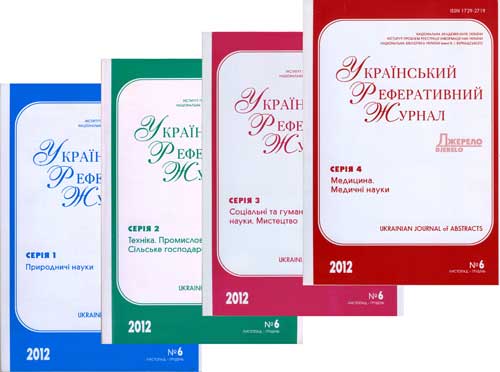РЕФЕРАТИВНА БАЗА ДАНИХ "УКРАЇНІКА НАУКОВА"
Abstract database «Ukrainica Scientific»
Бази даних
Реферативна база даних - результати пошуку
|
|
Пошуковий запит: (<.>ID=REF-0000634682<.>) | |||
|
Загальна кількість знайдених документів : 1 |
|||
Yevsieieva I. Effective leadership style as the main aspect of managing conflicts in food industry enterprises / I. Yevsieieva, V. Moskalenko // Вісн. Черкас. ун-ту. Сер. Екон. науки. - 2016. - № 2. - С. 71-80. - Бібліогр.: 13 назв. - англ. The changeable market environment and desire to be competitive require to do the right steps for the future success and to choose an appropriate leadership style from the owners of the enterprises. All these measures will promote the opportunities to improve business processes and increase efficiency of the enterprises. The main objective of this article is to show the importance of choosing a right. Analyzing the problems the following methods were used: abstract logical style (theoretical to generalization, to drawing the conclusions), statistically-economic groupings (to reflect changes in the enterprises development), the method of expert evaluations (to determine the importance of the right choice of the leadership style), graphics (to create the charts, to determine the dependencies), etc. The studied research papers have shown that there are connections between person's emotions, attitudes and behavior. Thus being an effective leader means to be decisive, but adaptable and emotionally stable. According to the authors' point of view a list of the main features of an effective leader was formed. The main elements include: authority, influence, delegation, responsibility, accountability and power which will give a positive result of the determined job and one element such as flexibility was added to the main list. To the authors' opinion flexibility is the opportunity and quick reaction to adapt the activities of the company to modern changeable conditions. The main leadership styles are described and the level of their usage for food enterprises is determined by the authors. Whatever leadership style would not be selected, it various stages of its development that the leaders meet a number of the conflicts. There are conflicts related to: - leader's personality (self-confidence, self-consciousness); - formal leadership and informal leadership, for instance, in a team or in the department for the power to influence others; - a leader and co-worker (or team member) to lead the employees; - team members who have a bad impact on the results of their activities. Due to the conflict resolving approaches we can make a conclusion that it is vital to analyze all factors and then make a decision considering all possible consequences.. The article describes a choice of an appropriate leadership style for food industry enterprises and gives an opportunity to understand how to handle conflict situations in the right way. The leaders who use an authoritarian style of leadership resolve the conflicts with a forcing approach. These leaders often have conflicts of objectives as well as conflicts of feelings and emotions. In addition, managers who use participative (Democratic) and delegative (Laissez-Faire) leadership styles often practice compromise and accommodation approaches. The above-mentioned types of the leadership styles often have conflicts associated with the ideas and ways of solving them. Modern types of leadership, such as transformational leadership and transactional leadership, use compromise and cooperation approaches - collaboration. Choosing the right leadership style and ability to handle conflicts gives an opportunity to increase efficiency, build favorable climate and achieve success for the company. Індекс рубрикатора НБУВ: У9(4УКР)306.71-642.18-21 Рубрики: Шифр НБУВ: Ж69408 Пошук видання у каталогах НБУВ Додаткова інформація про автора(ів) публікації: (cписок формується автоматично, до списку можуть бути включені персоналії з подібними іменами або однофамільці)
| |||
| Національна бібліотека України імені В. І. Вернадського |
 |
| Відділ наукового формування національних реферативних ресурсів |
 |
| Інститут проблем реєстрації інформації НАН України |
Всі права захищені © Національна бібліотека України імені В. І. Вернадського